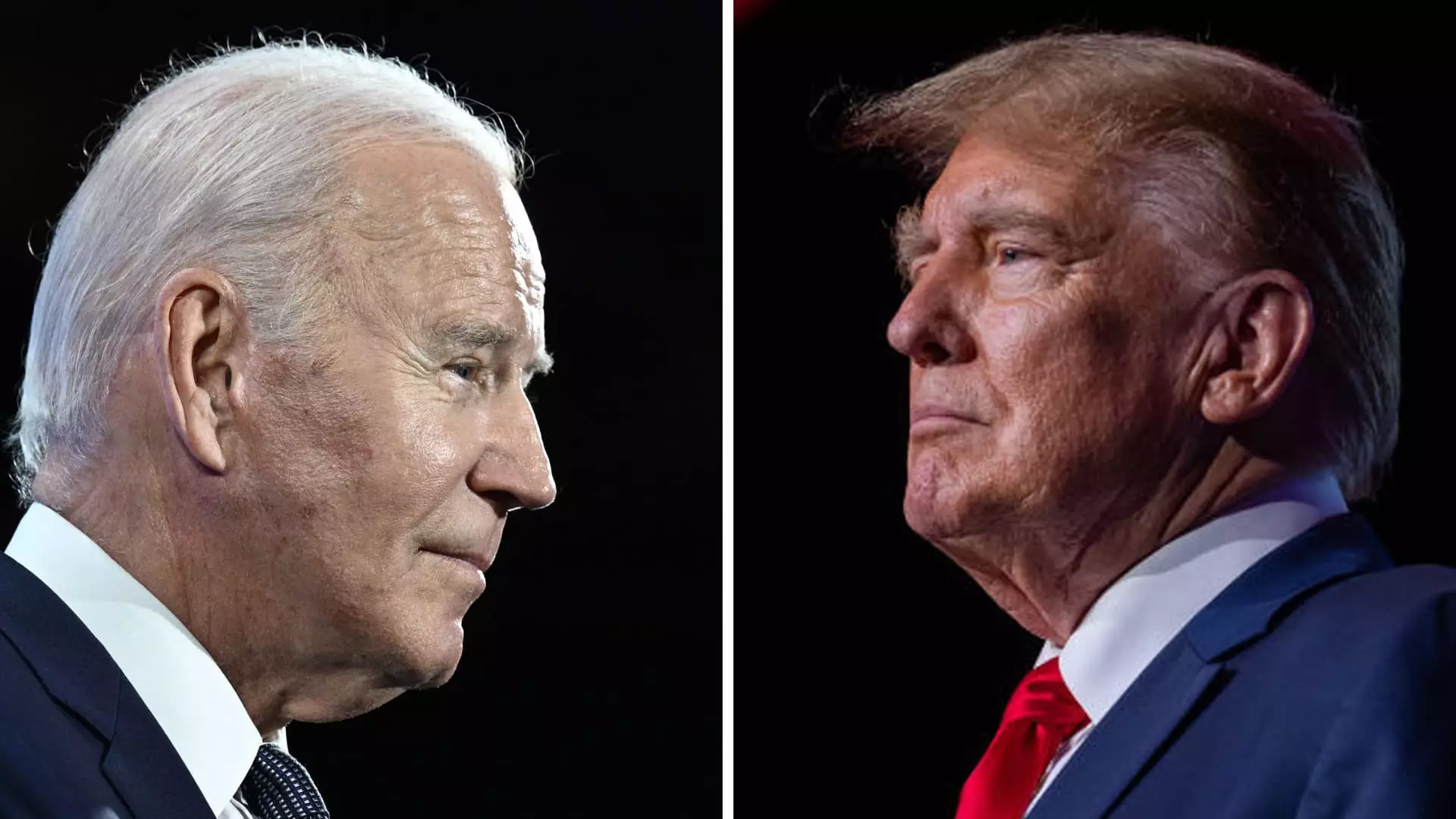The upcoming 2024 presidential debate between President Joe Biden and former President Donald Trump is expected to shed light on their stance regarding tax policy. One crucial issue that will likely be discussed is the expiration of Republicans’ tax breaks, which were implemented through the Tax Cuts and Jobs Act of 2017 (TCJA). Several provisions of the TCJA are set to expire after 2025, including lower federal income tax brackets, a boosted child tax credit, and higher estate and gift tax exemptions. The Tax Foundation estimates that over 60% of tax filers could potentially face increased taxes in 2026 if these provisions expire.
Both campaigns express the desire to extend TCJA provisions for most Americans, but concerns have been raised about the cost of these extensions, especially given the current federal budget deficit. The Congressional Budget Office reported that fully extending TCJA provisions could add around $4.6 trillion to the deficit over the next decade. President Biden proposes funding TCJA extensions for those making less than $400,000 by increasing taxes on the ultra-wealthy and corporations. However, the fate of these proposals remains uncertain, particularly with the control of Congress up in the air.
Former President Trump has indicated his intention to fully extend expiring TCJA provisions. He has also expressed support for tariffs, advocating for the elimination of taxes on workers’ tips and implementing an “all tariff policy” to replace income tax. Trump’s approach to tariffs has been a contentious issue, with critics arguing that they increase input costs for American businesses and put them at a disadvantage in global competition. During his term, Trump imposed tariffs on countries like China, Mexico, and the European Union, with many of these tariffs still in place under the Biden administration.
As the first presidential debate approaches, there is a sense of anticipation regarding how Biden and Trump will address the looming tax policy challenges. While Biden aims to increase taxes on the wealthy to fund TCJA extensions for the middle class, Trump remains a wildcard with his unconventional proposals. The discussion on tax policy, including the fate of TCJA provisions and the implications of tariffs, is expected to be a pivotal aspect of the debate. The economic ramifications of these policies, particularly in terms of business competitiveness and budget deficits, will likely be closely scrutinized by voters and experts alike.
The presidential debate between Biden and Trump presents an opportunity for both candidates to articulate their visions for tax policy in the upcoming years. The battle over the fate of TCJA provisions, the cost of extending tax breaks, and the impact of tariffs on the economy will be central themes of the discussion. How the candidates navigate these complex issues and present their solutions to voters could have a significant impact on the outcome of the 2024 election.

